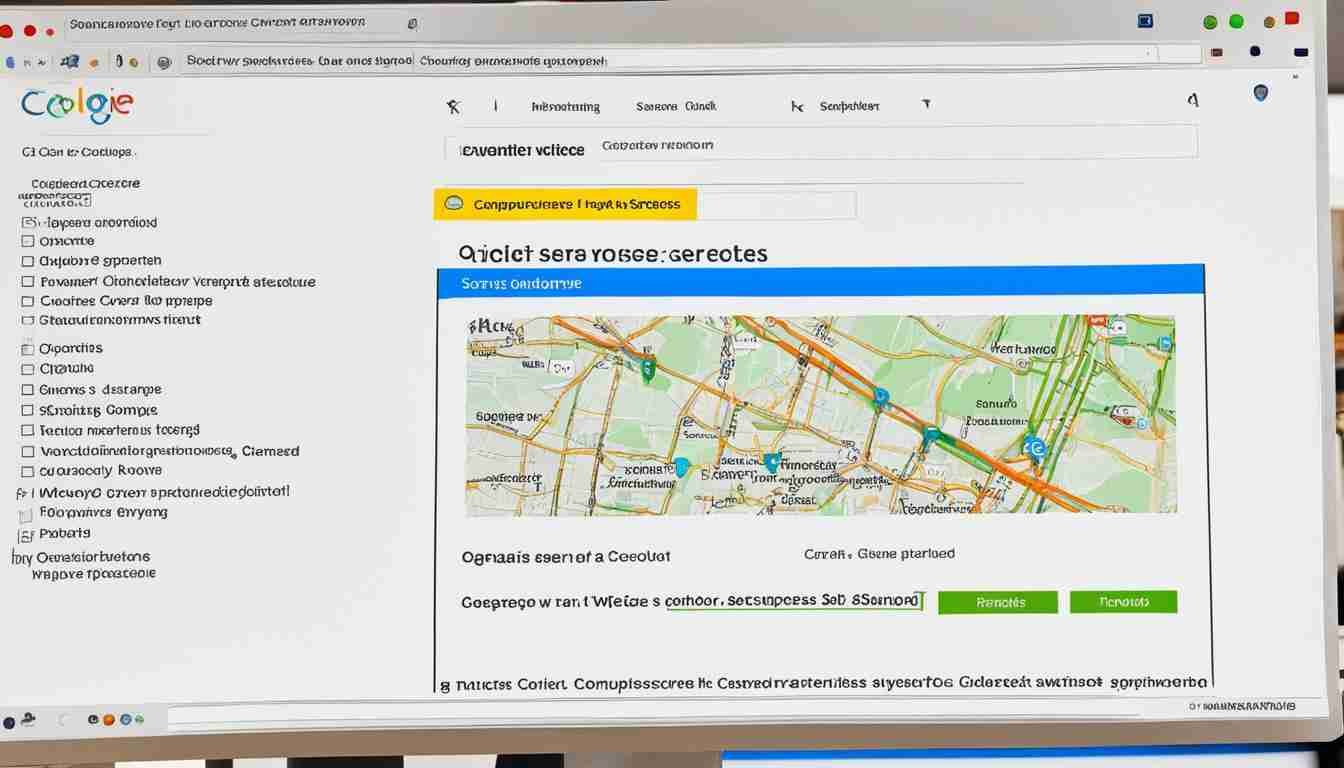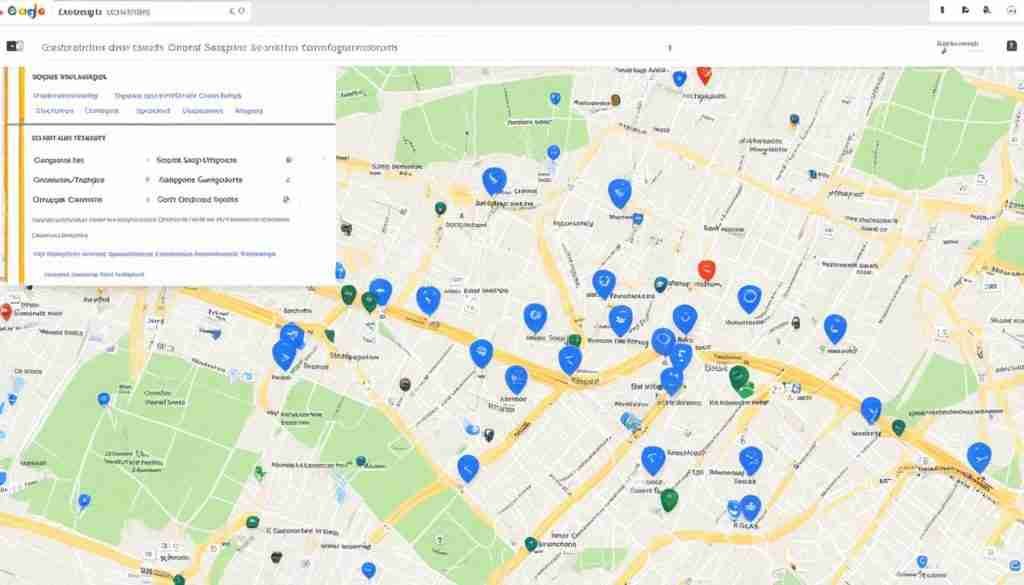Almost all online activities start with a search engine, making SEO key for any website’s success. But, using unethical tactics like SEO cloaking can get your site in trouble with search engines like Google. SEO cloaking is a sneaky way to show one thing to search engines and another to people visiting your site. This goes against the rules and can lead to big penalties, like losing your ranking or being banned from search engines.
Key Takeaways
- SEO cloaking is a sneaky technique that shows different content to search engines and people.
- Common ways to cloak include hidden text, using different user agents, IP cloaking, and HTTP Accept-Language cloaking.
- This trick can lead to big penalties from search engines like Google, including losing your ranking or being banned.
- Cloaking can also hurt your website’s reputation by making people lose trust in it.
- Using tools like SiteChecker and DupliChecker can help keep your site in line with search engine rules.
Unveiling the Deceptive Practice of Cloaking in SEO
Some websites use a sneaky tactic called cloaking to boost their search engine rankings. This means they show different content or URLs to search engines than what users see. This is against the rules and harms the web’s trust.
Understanding Cloaking
Cloaking in SEO uses server-side scripts to check if the visitor is a search engine or a person. It can be done through user-agent cloaking or IP-based cloaking. The first checks the HTTP user-agent, while the second looks at the IP address.
Common Cloaking Techniques
- User-Agent Cloaking: This method checks the HTTP user-agent to decide what content to show.
- IP Cloaking: It figures out if the visitor is a search engine or a person by their IP address.
- JavaScript Cloaking: This uses server scripts to give different versions of a website to bots and people.
- HTTP_REFERER Cloaking: It looks at the referring page to see where the visitor came from and changes the content.
- Flash-Based Cloaking: This serves different content to search engines and users, using Flash’s limits to hide content from search engines.
These tricks try to make websites look better in search engines but can hurt them a lot. Search engines like Google don’t like this and can punish websites that do it. They work hard to catch and punish these bad practices.
| Cloaking Technique | Description | Potential Consequences |
|---|---|---|
| User-Agent Cloaking | This method changes content based on the user’s browser type, to hide from search engines. | Search engines might punish the site, making it harder to find, hurting trust, and leading to legal trouble. |
| IP Cloaking | It checks the visitor’s IP to see if they’re a search engine or a person, then shows different content. | Search engines might punish the site, leading to legal issues and damage to the brand’s reputation. |
| JavaScript Cloaking | Uses server scripts to give different versions of a website to bots and people. | Search engines might punish the site, hurting trust, and making it harder to be found online. |
Cloaking might seem like a quick way to get ahead, but it really hurts the user and the web’s trust. Making quality content that follows search engine rules is a better way to succeed in SEO. This approach builds trust with search engines and visitors alike.

What is SEO Cloaking and Why You Should Avoid It
As a website owner or digital marketer, you might have heard about “SEO cloaking.” It’s a sneaky SEO trick that can harm your online presence. SEO cloaking means showing different content to search engines than what users see. It’s an attempt to trick search engines into thinking your site has more value than it does.
Cloaking techniques include IP cloaking, where servers show special content to search engines, and user agent cloaking, which spots bots by their user agent info. Other methods like HTTP header cloaking, GeoIP cloaking, and JavaScript cloaking also hide a website’s true nature from search engines.
Cloaking might seem like an easy way to get higher rankings quickly, but it’s risky and wrong. Search engines like Google see it as cheating and can punish your site. This could mean being removed from search results or even banned forever.
Cloaking also hurts your brand’s reputation and trust with users. Showing content that doesn’t match what users expect makes them feel tricked. This can lead to a bad user experience and harm your online trust.
“Cloaking is a violation of Google’s Webmaster Guidelines. Websites that engage in cloaking may be temporarily or permanently banned from the Google index.”
Instead of using sneaky tactics, focus on making great content that helps users. This approach is better for long-term SEO success. Following search engine rules and focusing on your audience helps build a strong, trustworthy online presence.

In summary, SEO cloaking is a bad practice to avoid. It might seem helpful at first but the risks are much bigger. Stick to honest SEO methods, make content that really helps your audience, and you’ll do well online.
Conclusion
Using shady tactics like what is seo cloaking in SEO isn’t worth the risk. Quick gains in search rankings aren’t worth the trouble of fighting a Google penalty or ban. There are better ways to succeed that don’t involve breaking the rules.
By skipping seo cloaking techniques and other black hat seo tricks, you can create a strong online presence. Understanding how search engines detect and punish search engine deception is key. Focus on making your site better for users and following search engine rules.
This approach is good for your site’s long-term success, just like Maconsultingservices.site or Ma Consulting Services.
Choosing ethical seo practices builds trust with your audience. Avoiding unethical seo practices like cloaking helps you build a loyal brand.
FAQ
What is SEO cloaking?
SEO cloaking is a sneaky SEO trick. It shows one thing to search engines but another to visitors. This is against Google’s rules and tries to trick search engines.
What are the common cloaking techniques used in SEO?
Common cloaking tricks include hiding text and using different user agents. Some also use IP and HTTP accept-language cloaking. These tricks aim to fool search engines and give users a different view.
What are the consequences of using cloaking in SEO?
Using cloaking can lead to big problems with Google. You might lose your search rankings or even get banned. It also hurts your brand’s trust and reputation by tricking people.
Source Links
- Cloaking in SEO: Everything You Need to Know About It – https://rockcontent.com/blog/cloaking-in-seo/
- What Is Cloaking in SEO? Your Ultimate Guide – https://www.seo.com/basics/glossary/cloaking/
- What is Cloaking? | Definition from TechTarget – https://www.techtarget.com/searchsecurity/definition/cloaking
- Unveiling SEO Cloaking: Ethical Strategies for Transparent Success | Romain Berg – https://www.romainberg.com/blog/seo/what-is-cloaking-in-seo/
- Cloaking: Unveiling the Secrets of CLOaking Techniques – FasterCapital – https://fastercapital.com/content/Cloaking–Unveiling-the-Secrets-of-CLOaking-Techniques.html
- Cloaking – An Overview of the Cloaking Technique, Its Risks, and Why It Should Be Avoided – Copymate – https://copymate.app/blog/multi/cloaking-an-overview-of-the-cloaking-technique-its-risks-and-why-it-should-be-avoided/
- What Is Cloaking In SEO: Everything You Need To Know – https://www.atroposdigital.com/blog/seo-cloaking
- What Is Cloaking In SEO And Should You Not Do It In 2021? – https://www.gsmresults.com/what-is-cloaking-in-seo/
- What Is Cloaking in SEO and Why It Can Be a Major Setback for Your Website – https://www.dashclicks.com/blog/seo-cloaking
- What is Cloaking in SEO? – GeeksforGeeks – https://www.geeksforgeeks.org/what-is-cloaking-in-seo/
- SEO Cloaking: Meaning, Types, Risks & Google Guidelines | DWS – https://www.digitalwebsolutions.com/blog/what-is-cloaking-in-seo/
- Cloaking in SEO: Understanding its Risks and Consequences. – https://cronuts.digital/en/cloaking-seo-risks-risks-consequences-digital-marketing/










